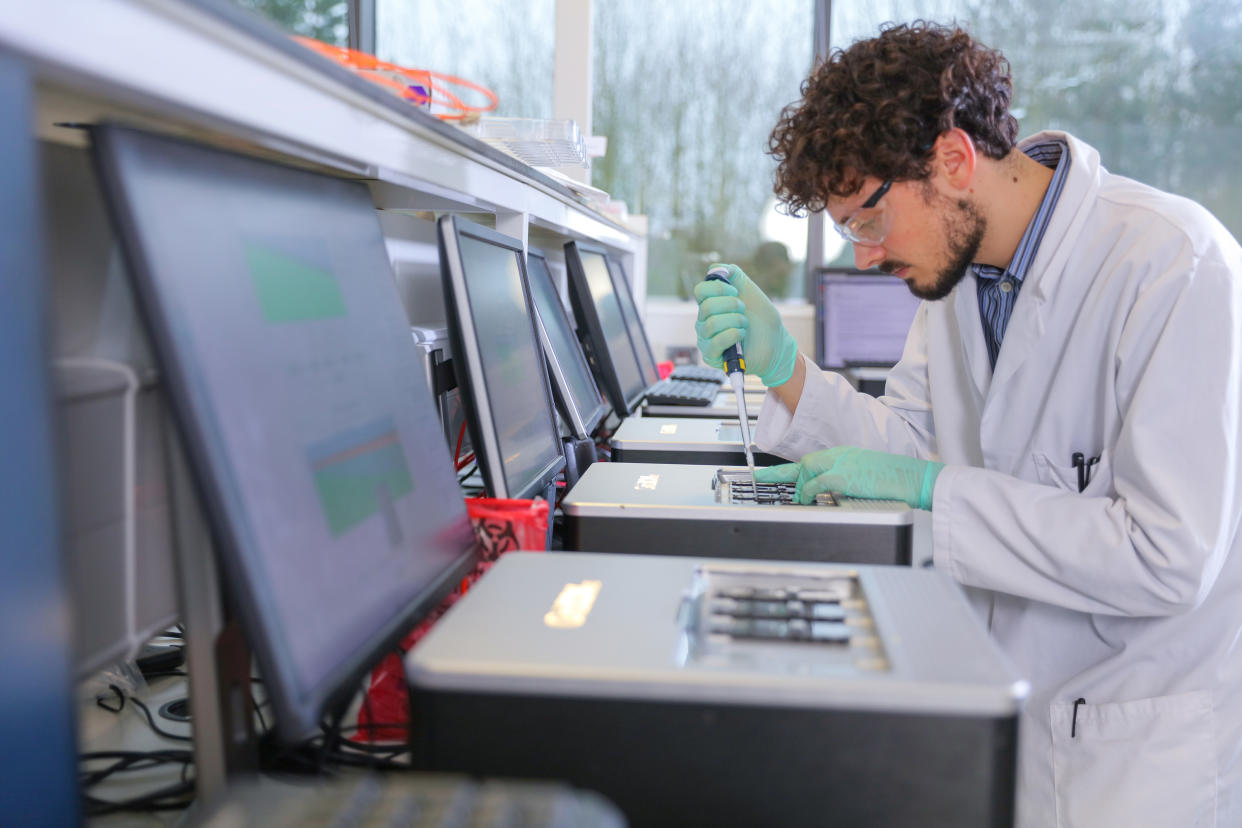IPO Watch: UK’s Oxford Nanopore plans £2.5bn float on London Stock Exchange

Oxford Nanopore announced plans on Friday to go public by floating at least 25% of its shares on the London Stock Exchange (LSEG.L) in a move that would value the life sciences company at upwards of £2.5bn ($3.5bn).
The firm, which has worked on rapid COVID-19 tests, hopes to reduce its losses and break even in the next five years.
Last year it partnered with the UK government to roll out its novel LamPORE test with the aim of containing COVID-19 cases.
The company is behind a new generation of nanopore-based sensing technology, whose products enable the "real-time, high-performance, scalable analysis of DNA and RNA".
If it goes ahead with the float, it would be significant for the London Stock Exchange as most of the UK's pharma and life science companies tend to list on the Nasdaq (^IXIC).
“Oxford Nanopore’s decision indicates that recent LSE rule changes are enticing more sought after tech listings to London,"Nalin Patel, senior analyst at PitchBook, told Yahoo Finance UK.
"European biotech companies have often listed on US exchanges to raise awareness and tap into new investor pools. However, changes to regulations on the LSE appear to be working and include the option to utilise a dual class share structure, which has proven popular for tech companies around the world in recent years.”
The company's CEO Gordon Sanghera told journalists in a call: "We as a company are already a global tech player and have a global shareholder base and when we did an analysis we realised the shareholders you will pick up in London are a similar quality to those you would pick up in New York."
Nanopore sensors are technology capable of quickly characterising individual molecules.
Sequencing these molecules is used to understand the biology of humans, including diseases such as cancer and pathogens such as bacteria, viruses and fungi.
Read more: UK economic recovery slows as spending falls
The group believes there is an additional opportunity for the tech in applied markets, including infectious disease, immune profiling and cancer, food safety, agriculture or other industrial environments.
"I believe we are only in the foothills of what is possible," said Sanghera.
"Looking further ahead, we see the potential for a global Internet of Living Things – a future in which real-time networks of biological sensors can be used to help the broadest of communities."
This could include tracking the spread of viruses in people, animals and environments, tracking marine ecology sensors to help understand climate change and perhaps even be embedded in wearable devices that track health data.
"An IPO will be a step on the journey to make our vision a reality, supporting our ambitious growth plans and enhancing our ability to innovate and grow," Sanghera said.
The company said DNA / RNA sequencing represents an estimated $5.7bn market in 2021 with an estimated compound annual growth rate of 18% between 2020 and 2023.
Oxford Nanopore raised £84.4m last year in private financing from existing and new investors.
Investors in the round included International Holdings Company, based in Abu Dhabi, and RPMI Railpen, a UK pension fund.
Watch: Why can't governments just print more money?


